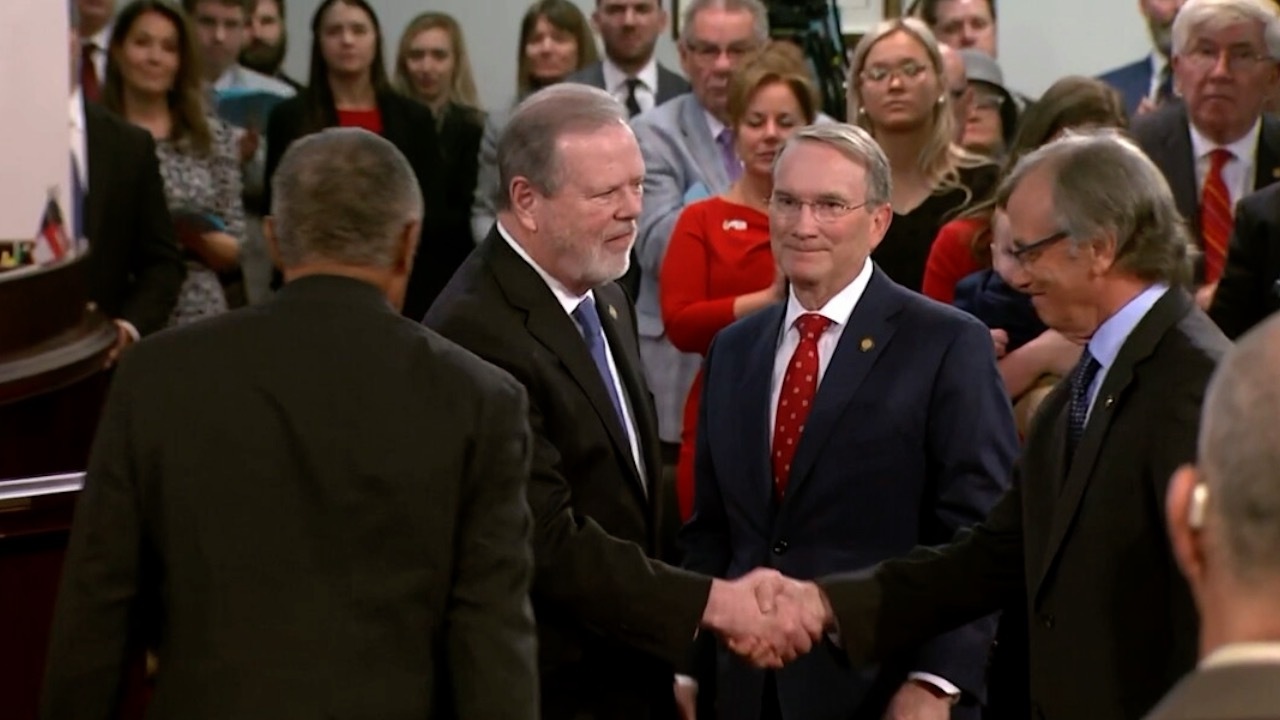Members of the North Carolina Senate were sworn into office Wednesday, marking the beginning of the 2023 long session for the state legislature. This is the first time the Senate has met since N.C. voters elected a Republican supermajority to the chamber in November 2022. The state Senate is now composed of 30 Republicans and 20 Democrats.
There are 12 new faces in the chamber, a 24% turnover rate. This is a bit higher than usual. Out of the 12 departing senators, six ran for U.S. Congress. Several others were “double-bunked” in the redistricting process due to the 2020 Census, meaning they were grouped into the same district as another incumbent senator.
Former Gov. Jim Hunt was in attendance and was recognized by Lt. Gov. Mark Robinson as a guest of honor.
Sen. Paul Newton, R-Cabarrus, nominated Sen. Phil Berger, R-Rockingham, to be re-elected as president pro tempore.
Berger was re-elected unanimously. Senate Minority Leader Dan Blue, D-Wake; Senate Majority Leader Paul Newton, R-Cabarrus; and Sens. Lisa Barnes, R-Nash; and Bill Rabon, R-Brunswick, accompanied Berger as he walked to be sworn in for a seventh consecutive term as Senate leader.

“We are here because the people placed faith in us to care for the state they love,” Berger said. “This day is as much about them as it is about us. Their voices — uttered through ballot boxes across North Carolina — signaled the direction they want North Carolina to take.”
Berger referenced the state’s fiscal challenges that Republicans inherited back in 2010, when the party took control of the Senate for the first time since early Reconstruction.
“Looking back, we were in a dire situation,” Berger said. “We inherited a $2.5 billion budget deficit, teachers and state employees were facing layoffs, job creation was lagging, and North Carolina’s tax and regulatory climate were impediments to growth and employment.”

Looking forward, Berger mentioned several items on his agenda to get done this year — improving education, reducing taxes, cutting regulations, building critical infrastructure, school choice, allowing parents to be involved and knowledgeable about curriculum, addressing learning loss, expanding Medicaid, and protecting the Second Amendment.
“As we begin to look at the issues we must tackle in the upcoming biennium, one of those issues is expanding Medicaid,” Berger said. “I support expanding Medicaid in North Carolina. However, we must recognize that it is not a silver bullet. North Carolinians are saddled with some of the highest healthcare costs in the country. We need to eliminate regulatory red tape and other bureaucratic barriers that impede access to care and unnecessarily increase medical costs.”
Sen. Ralph Hise, R-Mitchell, was unanimously elected deputy president pro tempore. Democrats chose Sen. Dan Blue, D-Wake, to return as minority leader and Sen. Jay Chaudhuri, D-Wake, as Minority Whip. Sarah Holland was unanimously elected as Senate principal clerk, a nonpartisan role that is responsible for the administrative duties of the chamber and is elected by the members every two years.
The Senate began a few minutes after 12 p.m. and adjourned at 1:22 p.m. The chamber will reconvene on Wednesday, Jan. 25 at noon.